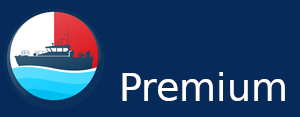CHIRP improves safety at sea through the provision of a confidential and independent
incident and near miss reporting programme. When appropriate, and with the reporters’
permission, these issues are passed on to company DPAs, Flag States, Classification
Societies or Unions so that they can be addressed. Reporters’ identities are never passed
on and always protected. We can also connect reporters to appropriate welfare
organisations who are best placed to directly assist the reporter.
The annual reporting cycle begins 01 April and completes 31 March the following year. This
report covers the period 2023-2024.
Summary
This report reveals similar findings to those identified in previous years. Many of the causal factors persist despite being relatively simple to address, and companies and organisations are strongly urged to do so.
This analysis of maritime reports underscores the important role that confidential incident and near miss reporting can have in improving safety at sea, and the industry is encouraged to improve the rate of near miss reporting.
As in previous years, this report suggests that manning and the schedule of operations should be driven by formal risk assessment rather than relying on IMO-mandated minima as their target, since it reduces the likelihood of incidents. his can be considered an investment, since incident costs are often orders of magnitude greater than salaries. Moreover, the causal link “from Board Room to Bridge” and the human cost of incidents both place an ethical responsibility on senior managers ashore to do so.
Download document (courtesy CHIRP):


